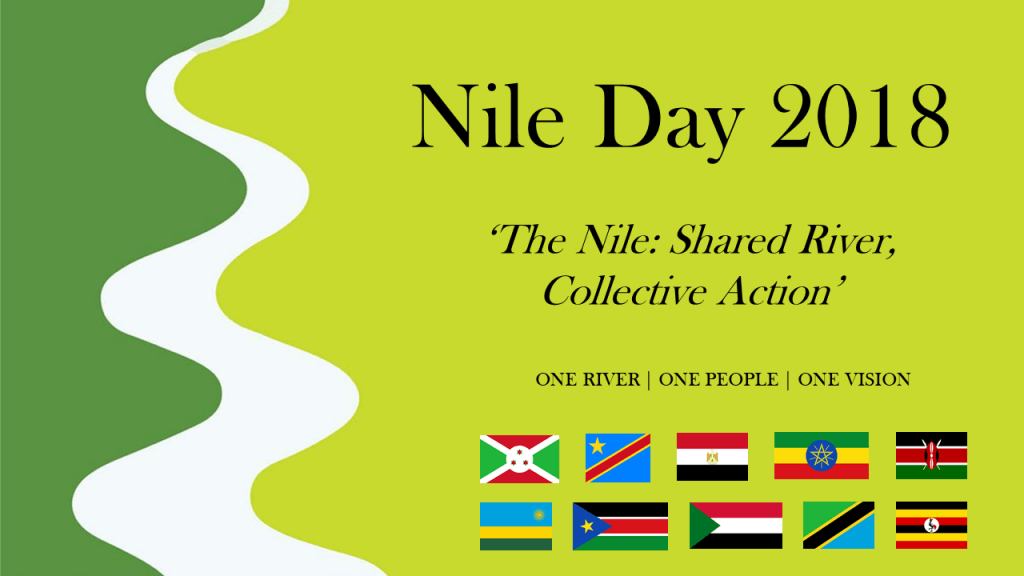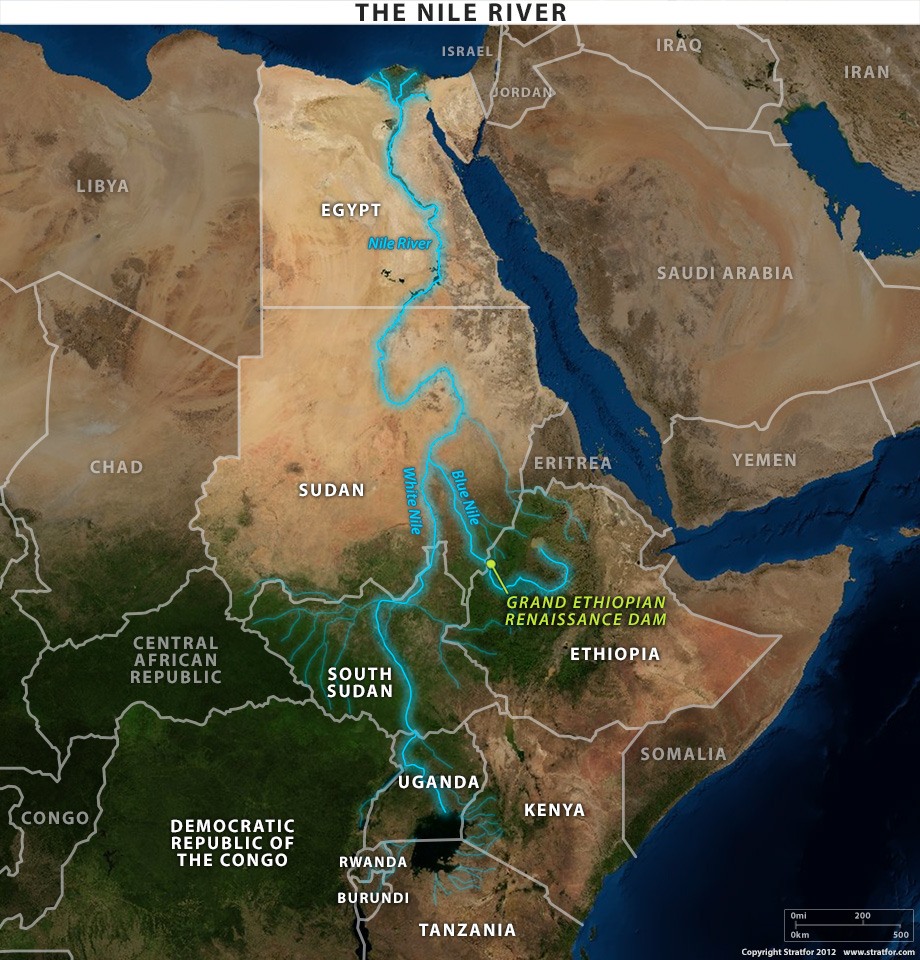The Nile: Shared River, Collective Action
By Dr. Eng. Seleshi Bekele
Ethiopia is hosting the 2018 Regional Nile Day celebrations in commemoration of the establishment of the Nile Basin Initiative (NBI) on February 22, 1999 in Dar es Salaam, Tanzania. Participants from Nile riparian countries will converge in our capital, Addis Ababa, to observe this big event.
February 22 marks a groundbreaking event in the history of the Nile Basin. It is on this date that for the first time ever, all riparian countries that share the Nile came together and vowed to develop, manage, protect and conserve as well as utilize water resources on the basis of a commonly formulated and adopted Shared Vision which still provides the guiding principle for our collective action.
The Shared Vision Objective is an aspirational statement which enunciates our desire to achieve “sustainable socio-economic development through the equitable utilization of, and benefit from, the common Nile basin water resources.”

In order to realize this Shared Vision Objective, Burundi, Democratic Republic of the Congo (DRC), Egypt, Ethiopia, Kenya, Rwanda, Sudan Tanzania and Uganda established the Nile Basin Initiative as a transitional institution with two component Programs: (a) a Shared Vision Program to build water resources management, development-related technical and institutional capacities at country and basin level, as well as trust and confidence; (b) Subsidiary Action Programs to embark expeditiously on much needed investment preparation.
In its nearly two-decade lifetime, NBI has achieved significant results through these two programs, about which all member countries and the international community that supported us should rightly be proud of. By way of illustration, I would like to single out three major areas of success.
First, Nile Basin countries agreed to work together on the basis of new modus operandus, which respects their sovereignty. That is to say, they agreed to negotiate a New Treaty that would supersede and replace all preceding colonial and post-colonial treaties which were perceived as inequitable and not all-inclusive. The Nile Basin Cooperative Framework Agreement (CFA), whose 10-year negotiation was concluded in 2010 is a breakthrough and a milestone achievement by itself.
Second, the Nile Basin Initiative is the only common institution to-date that offers basin-wide platform for countries to dialogue, consult, plan and work together. NBI has been delivering results that provide a firm technical and institutional foundation until it is replaced by the permanent Nile River Basin Commission which would be established upon ratification of the CFA by at least six signatory countries.
Third, we understand the River with its challenges better than before. Each Nile Basin country has now a clear picture how to access and utilize the common Nile Basin water resources. There is better appreciation of the upstream-downstream interdependencies and mutuality as well as both the challenges and opportunities this phenomenon poses to all concerned. Not only we appreciate the vulnerabilities, needs and aspirations of each of our countries, but also we are now increasingly aware of our collective custodianship, responsibility and duty to husband, protect and conserve the Nile for future generation.
We are more aware of the potential damages we could inflict on the Nile if we perpetuate unfettered, unilateral and competitive utilization. That is to say, thanks to having collaborative discussions via the platforms NBI provided to us, Nile Basin countries no longer consider Basin Cooperation an option, but an existential imperative.
Notwithstanding our achievements, the Nile has several challenges ahead of it which requires more basin-wide cooperation. We need to prepare for the adverse Climate Change impacts our basin is likely to face and towards which our countries hardly contributed. We are likely to be compelled to live with more frequent extreme events such as floods and droughts, to mention but a few. Moreover, we do not own definitive knowledge yet about their duration and immensity. All the same, we need to have an in-depth understanding and it has to be urgent.
Demand for the finite Nile waters together with high rates of economic growth, high rates of urbanization and rapid growth of population across the basin is escalating. For example, the Nile Basin population is projected to double to one billion in less than two decades. Our watersheds are facing increasing degradation and our unique biodiversity is facing extinction.
All the above trends indicate that change is happening. The question therefore, is whether our modus operandi, which is the way we do our water resources planning, management, and development, be it at a country, sub-basin or basin scales, is nimble, flexible and dynamic enough to cope and manage these changes. Despite the pressure and temptation to work in the same time-worn fashion, we need to abandon old habits and patterns of thinking and mindsets in terms of policy making, policy planning and trans-boundary institution-regime-building. Instead, we need to be prepared to pioneer innovative, bold policies at multiple levels that enable us create new values, new synergies and more collective vigorous and adaptable competencies. We still can choose not to be hostages of the past.
This said, though, I still see reasons for hope. We are learning to cooperate and work together, craft common agenda, embark on cooperative ventures while not always agreeing on everything. For example, despite its reservations on CFA, Sudan has resumed participation in the NBI in 2012, after two years of absence. We want to believe that it is a matter of time before Egypt will rejoin the NBI family. Despite the disagreements over aspects of the Grand Ethiopian Renaissance Dam (GERD), Egypt and Ethiopia, along with Sudan, have signed the Declaration of Principles (DoP) and are working together to craft modalities for the eventual filling and operation of the dam.

Summing up the foregoing, one thing is evident, that is, our Shared Vision is as relevant as it was when it was first formulated in 1999. The emphasis on a common resource, which is the Nile, and an equitable utilization of its resource, are still valid. But then, utilizing and benefiting from a common resource also requires concomitant obligation to protect and conserve that resource. In other words, a “Shared River” requires “Collective Action”, which entails a mandatory cooperation for everyone concerned.
It is my firm belief that no Nile Basin Member State would entertain the idea that “the tragedy of the commons” may befall our great River. The “tragedy of the commons” occurs when communities sharing a common pool resource such as water bodies are so focused on competition to ensure exclusive maximization of individual benefits, which in the long-run and ultimately threaten that shared resource itself. Killing the proverbial goose that lays the golden eggs is not rational. We, therefore, could and should benefit from cooperation and collective action.
This could, for example, be manifested by coordinating our investment plans, our operations and finding ways to internalize social and environmental costs, building common strategies to prepare for and cope with Climate change impacts, putting in place common measurement systems, standards, analytical frameworks to help us better monitor, plan and manage the Nile, reconcile individual country-requirements and needs with basin-wide strategic priorities, etc. In terms of broadening and deepening our collective action, we only have started scratching the surface.
A lot remains to be done! A lot of potential remains to be tapped! Suffice to say, that Nile Basin cooperation is necessary and irreversible.
To reiterate, it is my earnest conviction that Nile Basin Cooperation is happening now and will be sustained for years to come, for posterity. After all, this great River that weaves and bends and passes through all our countries is the umbilical cord that connects and nourishes us all. The motto for Celebrating Nile Day this year “Shared River, Collective Action” is apt and descriptive enough of our common duty to cooperate.
On behalf of the FDRE and the Ministry of Water, Irrigation and Electricity I welcome all Participants to the 2018 Nile Day Celebrations, and to Addis Ababa.
H.E. Dr. Eng. Seleshi Bekele, Minster of Water, Irrigation and Electricity of the Federal Democratic Republic of Ethiopia (FDRE)
Latest News
Browse allwe appreciate your help.